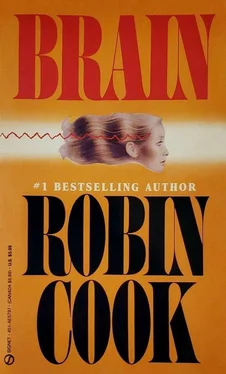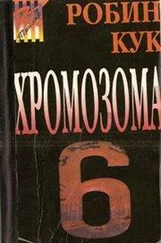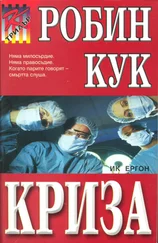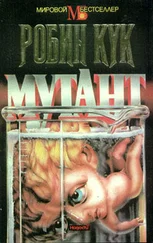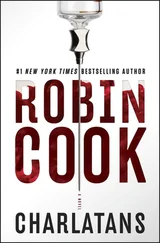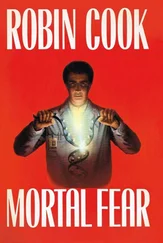“You oughtta let us know when you’re coming up here,” said Chobanian. “Some of the microscopes have been walking outta this building and we’re trying to tighten up.”
Philips got one of the evening radiology technicians to come over to Neuroradiology between ER trauma cases to offer an opinion. Philips had tried unsuccessfully to take an X ray of McCarthy’s partially dissected brain, which he had put on a paper plate. No matter what Philips did, the X rays were bad. On all the films it was difficult to make out the internal structure. He’d tried reducing the kilovoltage, but it didn’t help. The technician took one look at the brain and turned green. After he left, Martin finally decided what the problem was. Even though the brain had been in formaldehyde, the internal structure must have decomposed enough to blur any radiological definition. Plopping the brain back into its jar, Philips took it and the pack of slides up to Pathology.
The lab wasn’t locked up but it was deserted. If someone wanted to steal microscopes, this is where they should come, thought Philips. He opened the door to the autopsy room. No one there either. Walking down the long central table supporting a whole line of microscopes, each with its dictation unit next to it, Philips remembered the first time he had looked at his own blood. He recalled his terror that the slide would be leukemic. Medical school had been a time for imaginary diseases and Martin had contracted almost all of them.
Toward the back of the room he found a Bunsen burner busily boiling a beaker of water. Putting down the jar and the slides, he waited. It wasn’t long. A grossly overweight pathology resident waddled in. He wasn’t expecting company because he was zipping his fly as he came through the door. His name was Benjamin Barnes.
Philips introduced himself and asked if Barnes would do him a favor.
“What kind of favor? I’m trying to get this autopsy done so I can get my ass out of here.”
“I’ve got a few slides. I wonder if you would take a quick look at them?”
“There’s plenty of scopes here. Why don’t you help yourself?”
It was a presumptuous way to treat a staff man even if he was from another department, but Martin forced himself to suppress his irritation. “It’s been a few years,” he said, “Besides, it’s a brain and I was never good at brain.”
“It would be better to wait for Neuropath in the morning,” said Barnes.
“I’m interested in a quick impression now,” Martin said.
Philips had never found fat people to be jolly, and the pathologist was confirming his impression.
Barnes reluctantly took the slides and placed one under the scope. He scanned around, then put in another. It took about ten minutes to go through the group.
“Interesting,” he said. “Here, take a look at this.” He moved aside so Philips could see.
“See that open area?” asked Barnes.
“Yeah.”
“Used to be a nerve cell there.”
Philips looked at Barnes.
“All these slides with the red-grease-pencil marks have areas where the neurons are either missing or in bad shape,” said the resident. “The curious thing is that there’s very little if any inflammation. I don’t have any idea what it is. I’d have to describe it as ‘multifocal, discrete neuron death,’ etiology unknown.”
“You don’t even want to guess the cause?” asked Philips.
“Nope.”
“What about multiple sclerosis?” asked Philips.
The resident made a strange face, wrinkling his forehead. “Maybe. Occasionally there’s some gray matter lesions in multiple sclerosis, even though the lesions usually are all white matter. But they don’t look like this. There’d be more inflammation. But to be sure I’d have to do a myelin stain.”
“How about calcium?” asked Philips. Philips knew there weren’t too many things that affected X-ray density, but calcium was one of them.
“I didn’t see anything that suggested calcium. Again, I’d have to do a stain.”
“One other thing,” said Philips. “I’d like to have some slides made from the occipital lobe.” He patted the top of the glass jar.
“I thought you only wanted me to look at the slides,” said Barnes.
“That’s right. I don’t want you to look at the brain, just section it.” Martin had had a bad day and he wasn’t in a mood to deal with a lazy pathology resident.
Barnes had sense enough not to say anything else. He picked up the glass jar and waddled into the autopsy room. Philips followed. With a scoop, Barnes took the brain out of the formaldehyde and put it on the stainless steel counter next to the sink. Brandishing one of the large autopsy knives, he allowed Philips to point to the area he wanted. Barnes then took several half-inch slices and put them in paraffin.
“The sections will be done tomorrow. What kind of stains do you want?”
“Everything you can think of,” said Philips. “And one last thing. Do you know the diener who works nights down in the morgue?”
“You mean Werner?”
Philips nodded.
“Vaguely. He’s a little weird but he’s reliable and a good worker. He’s been there for years.”
“Do you think he’s on the take?”
“I don’t have any idea. What could he be on the take for?”
“Anything. Pituitary glands for growth hormone; gold teeth; special favors.”
“I don’t know. But I guess it wouldn’t surprise me.”
After the unsettling experience in the Neurosurgical lab, Philips felt particularly ill-at-ease as he followed the red line toward the morgue in the subbasement. The huge, dark, cavern-like room outside of the morgue looked like the perfect setting for some gothic horror. The quartz window in the door of the incinerator glowed in the darkness like the eye of a cyclopean monster.
“For God’s sakes, Martin. What the hell is wrong with you?” said Philips, trying to fortify his waning confidence. The morgue looked exactly as it had the evening before. The bulbless hooded light fixtures hanging down on their wires gave the scene a weird unearthliness. There was a faint odor of decay. The door to the refrigerator was ajar and a bit of its interior light spilled out along with a current of cold mist.
“Werner!” called Philips. His voice echoed in the old tiled room. There was no response. Philips stepped into the room and the door closed insistently behind him. “Werner!” The silence was only broken by a dripping faucet. Tentatively Philips advanced to the refrigerator and glanced within. Werner was struggling with one of the corpses. It had apparently fallen from its gurney because Werner was lifting the naked, stiff cadaver and awkwardly trying to reposition it on the movable stretcher. He could have used some help but Philips stayed where he was and watched. When Werner succeeded in getting the body onto the gurney, Martin stepped into the refrigerator.
“Werner!” Martin’s voice sounded wooden.
The diener flexed his knees and lifted his hands like a jungle creature about to attack. Philips had startled the man.
“I want to talk to you,” said Philips. He had decided to be authoritative, but his voice sounded weak. Surrounded by the dead, his defenses dissolved. “I understand your position and I don’t want to cause any trouble, but I need some information.”
Recognizing Philips, Werner relaxed, but he didn’t move. His breath came in short puffs of condensed vapor.
“I have to find Lisa Marino’s brain. I don’t care who took it or for what reason. I just want a chance to look at it for a research project.”
Werner was like a statue. Except for his visible breaths he was like one of the dead.
“Look,” said Martin. “I’ll pay.” He had never bribed anyone in his life.
Читать дальше
